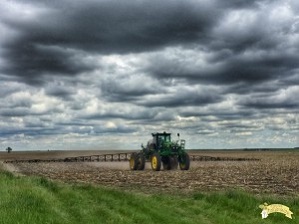Jenny Rohrich, a farmer from North Dakota, reminds us how many decisions must be made to protect crops from pests and disease.
Farmers need to carefully balance the benefits of the chemicals with the harm they may cause different crops. Different pesticides need to be used depending on the specific crop, the type of soil and crop rotation among other factors.
“Much like you take steps in your garden to keep your plants free from pests and disease, farmers utilize what we call crop protection products (herbicides, insecticides, fungicides, etc.) to help control the thousands of weed species, harmful insects and plant diseases that can afflict crops,” Rohrich said. “Whether organic or conventional, farmers face these challenges each growing season. The truth about pesticides we use on the farm is that we use specific chemicals labeled for very specific uses and at very specific amounts."
Products used for crop protection vary depending on crop, soil, crop rotation, current condition of the crop, pests and moisture.
"The choices we make regarding what to spray are careful, calculated, and measured out," Rohrich said. "It is not something we do haphazardly or thoughtlessly like many websites will suggest. We also utilize the best technologies like this sprayed pictured. It is GPS guided, has functions that allow us to not spray the same part of the field twice, as well as ensure we are not over applying any of our chemicals.”




 Alerts Sign-up
Alerts Sign-up